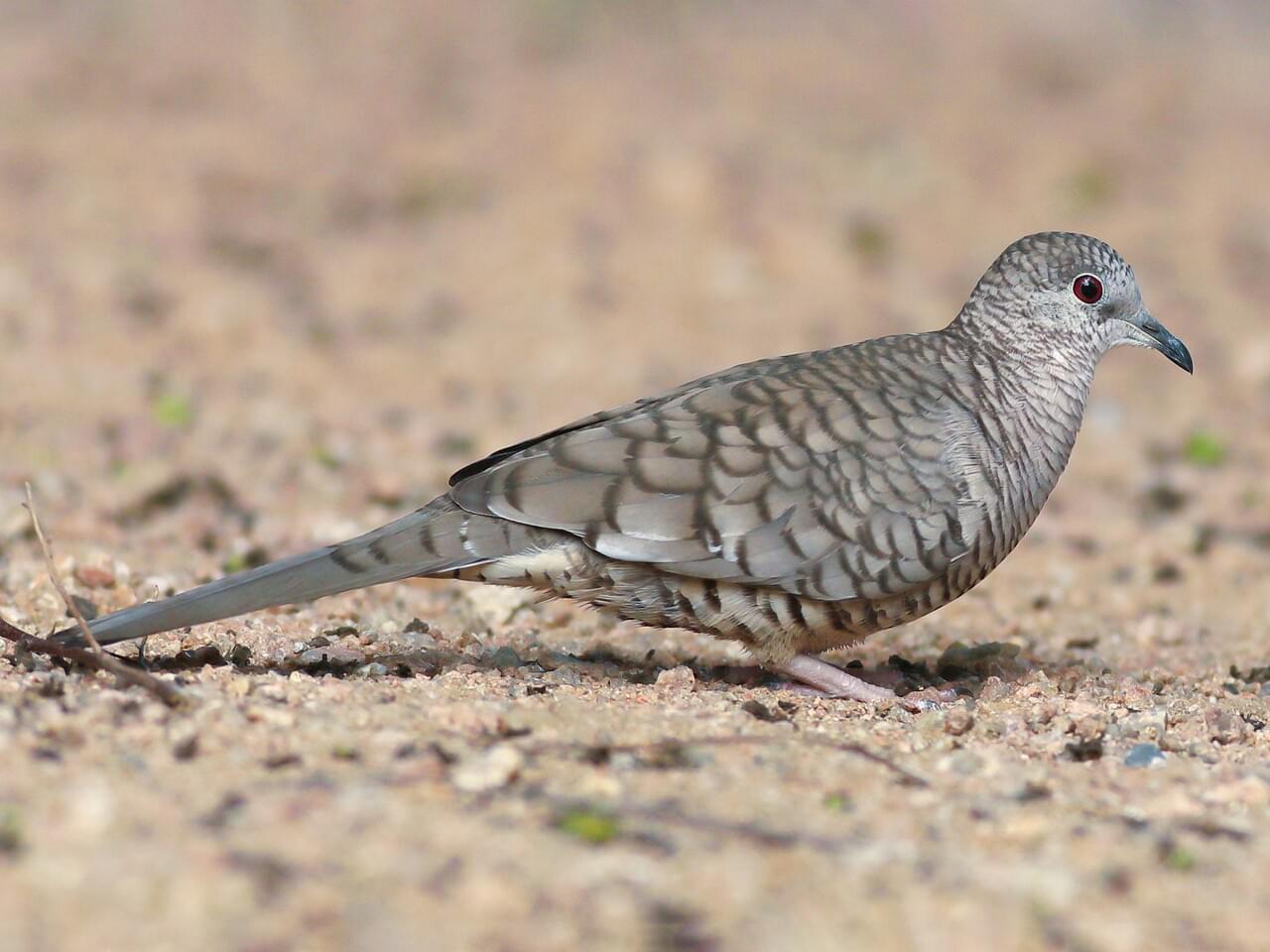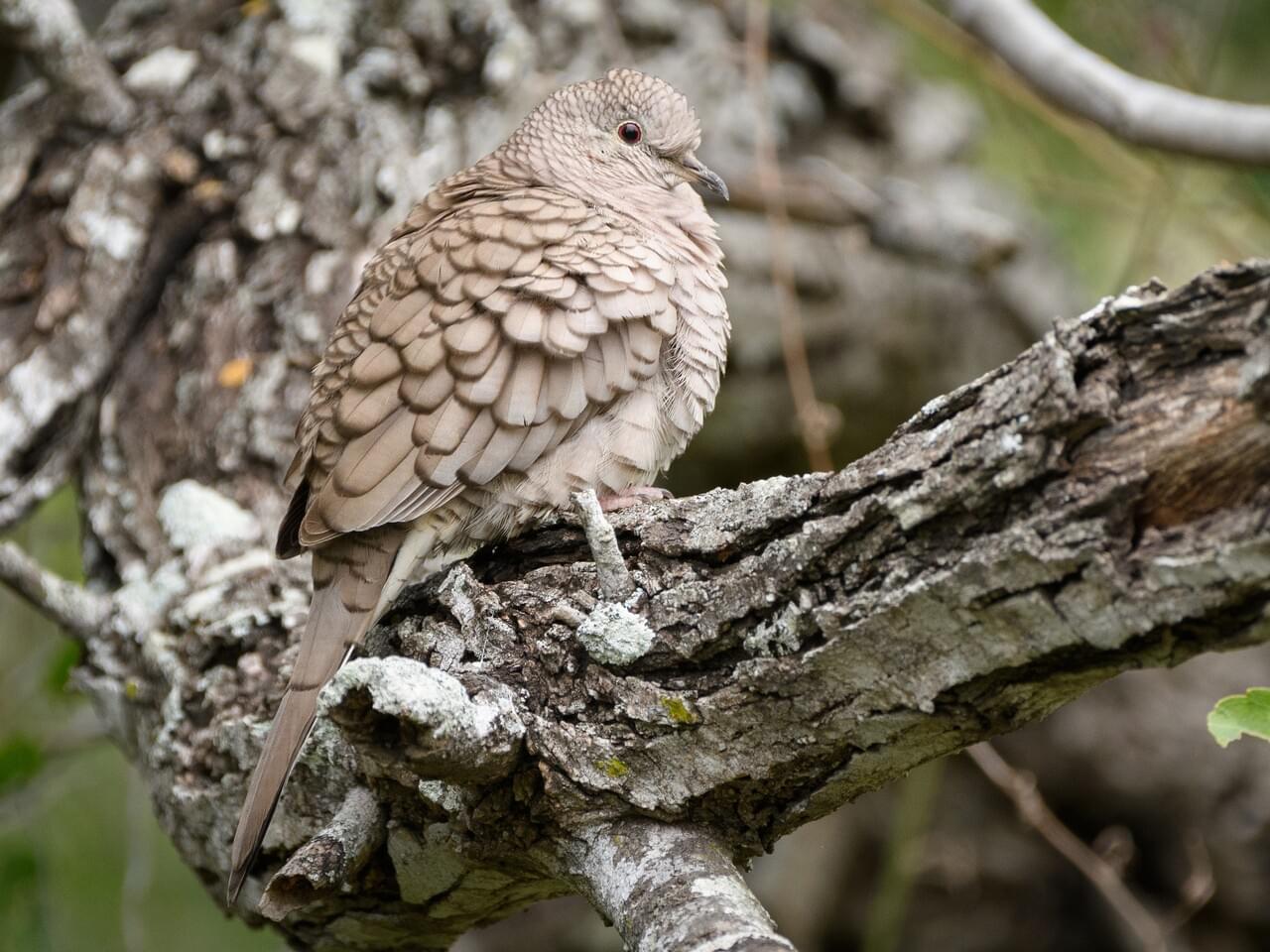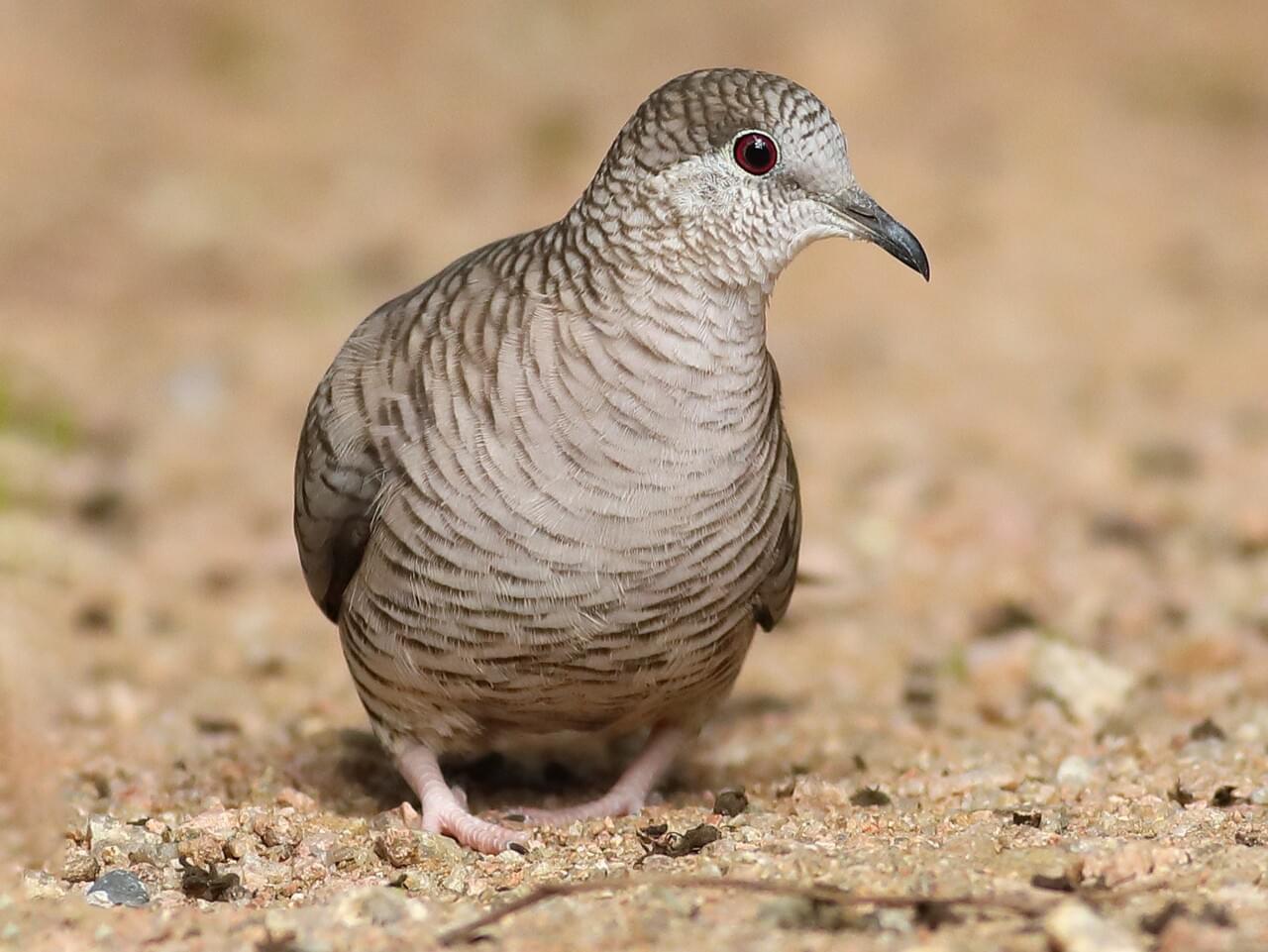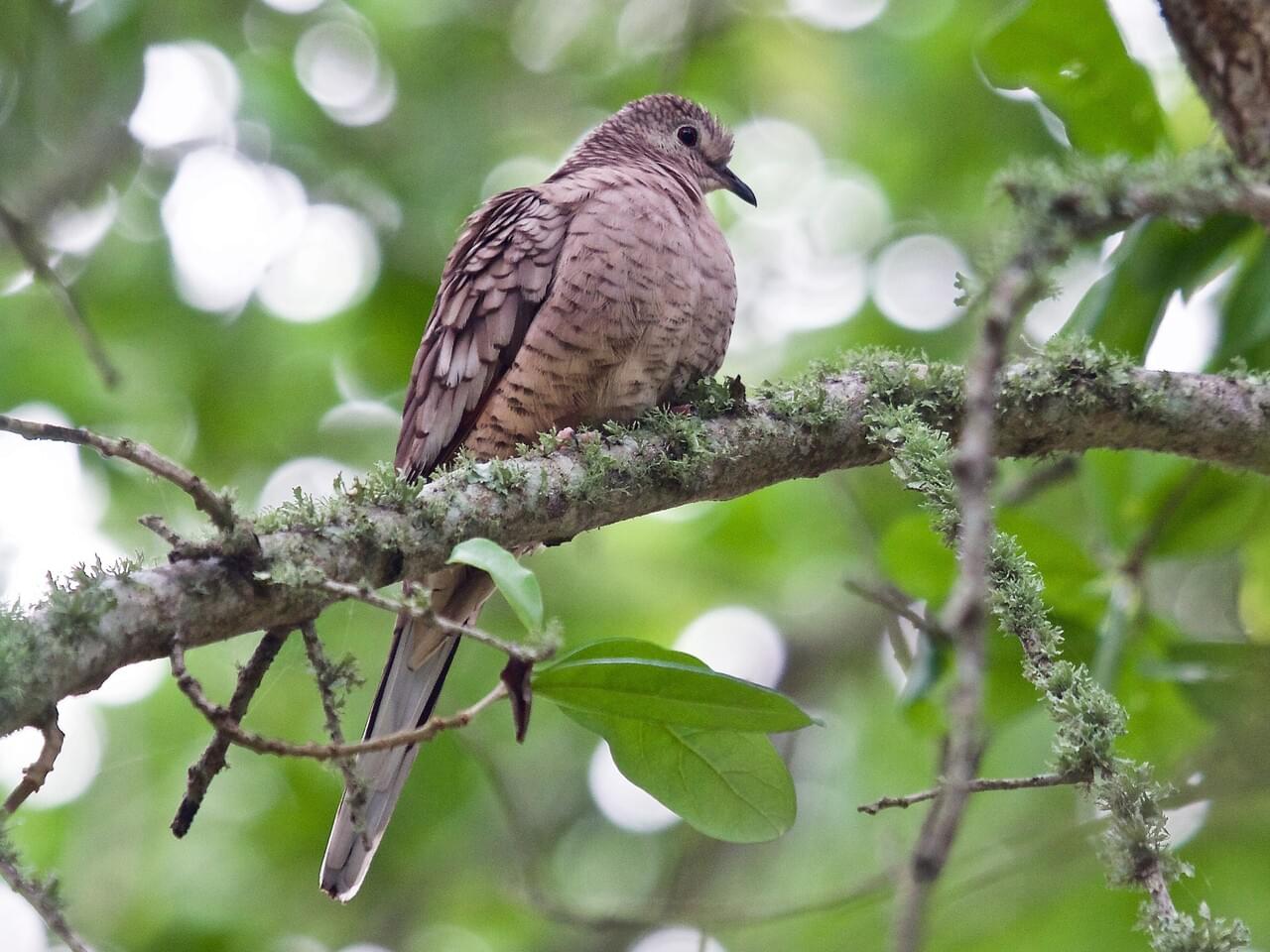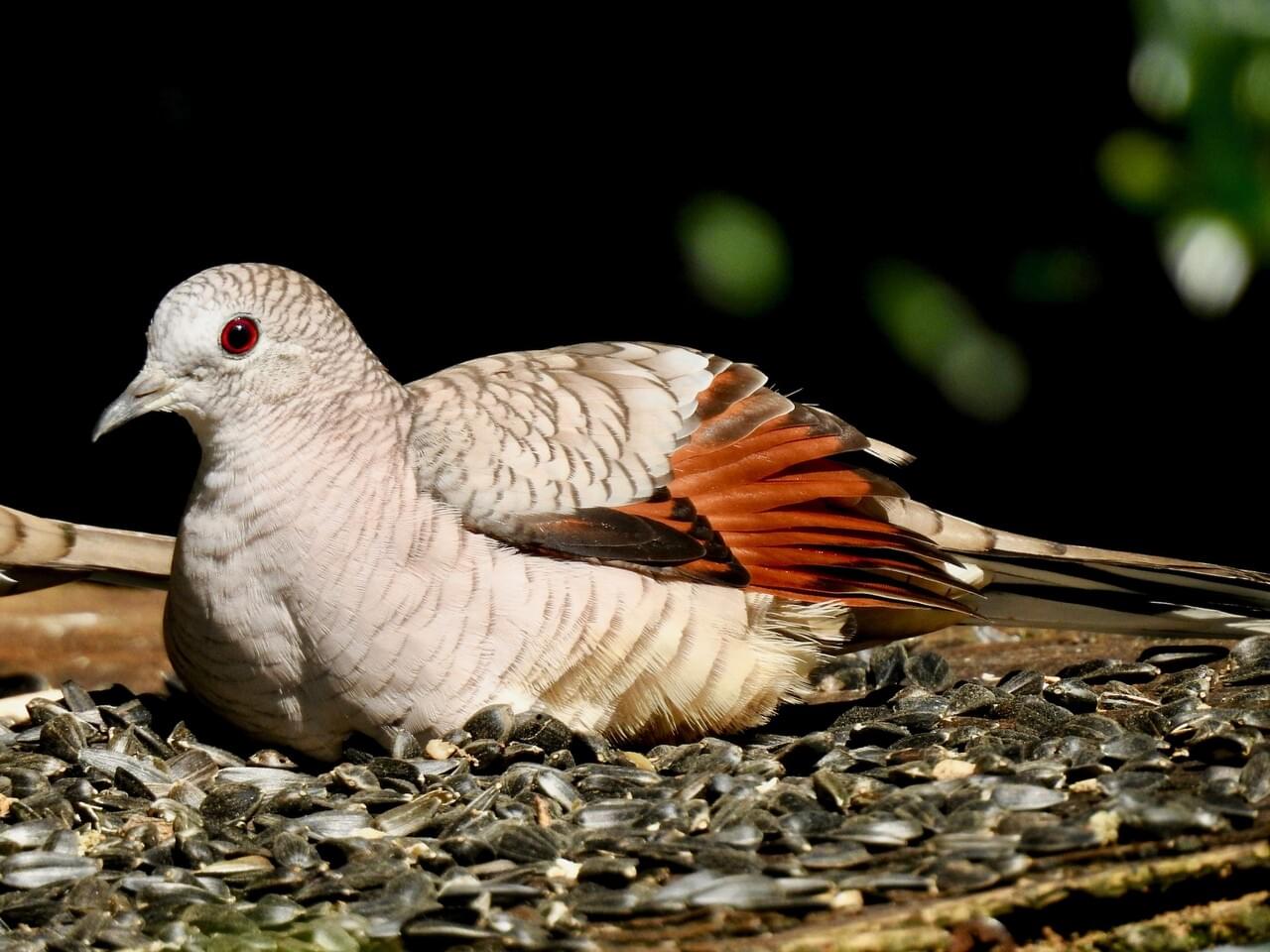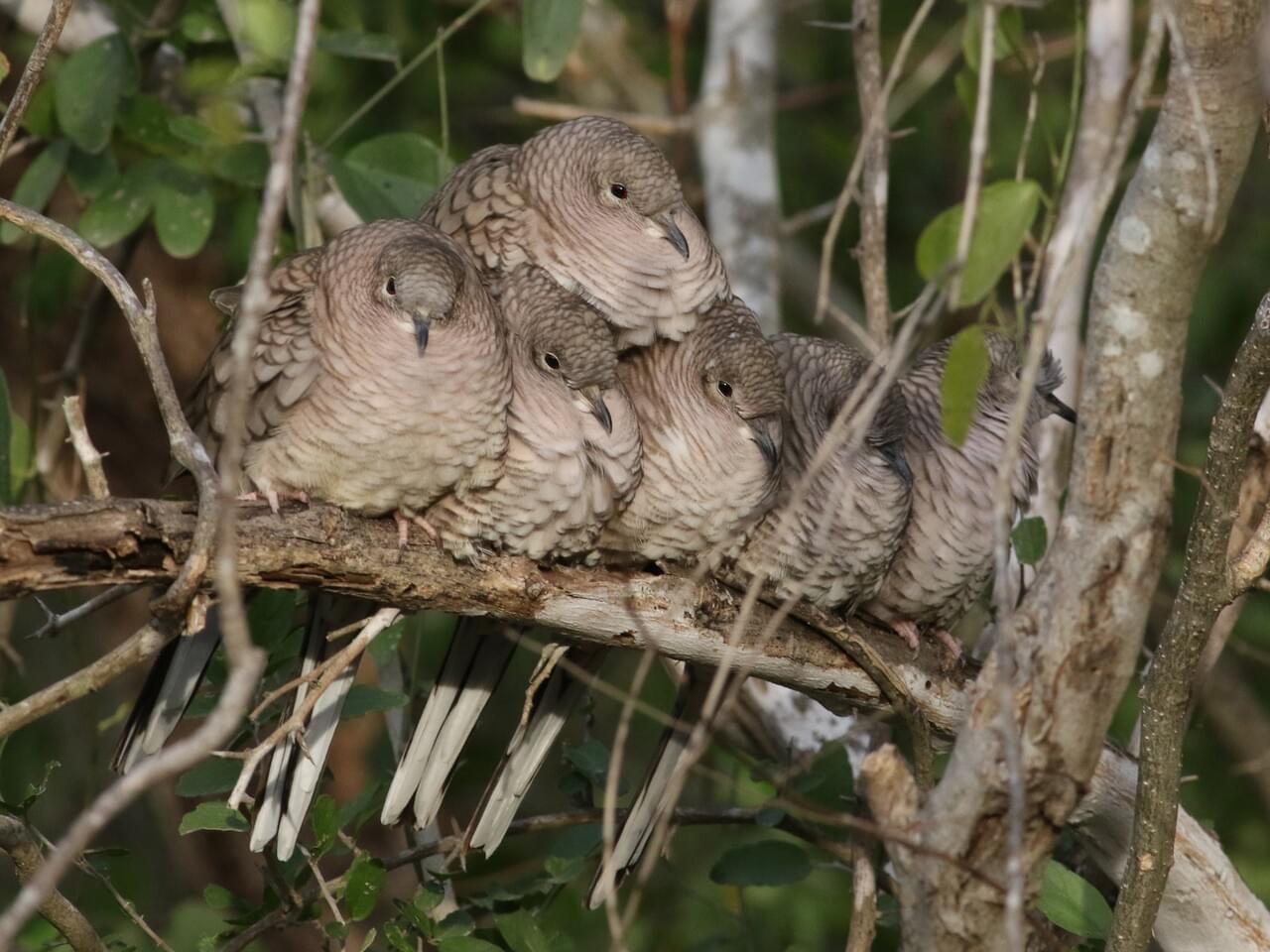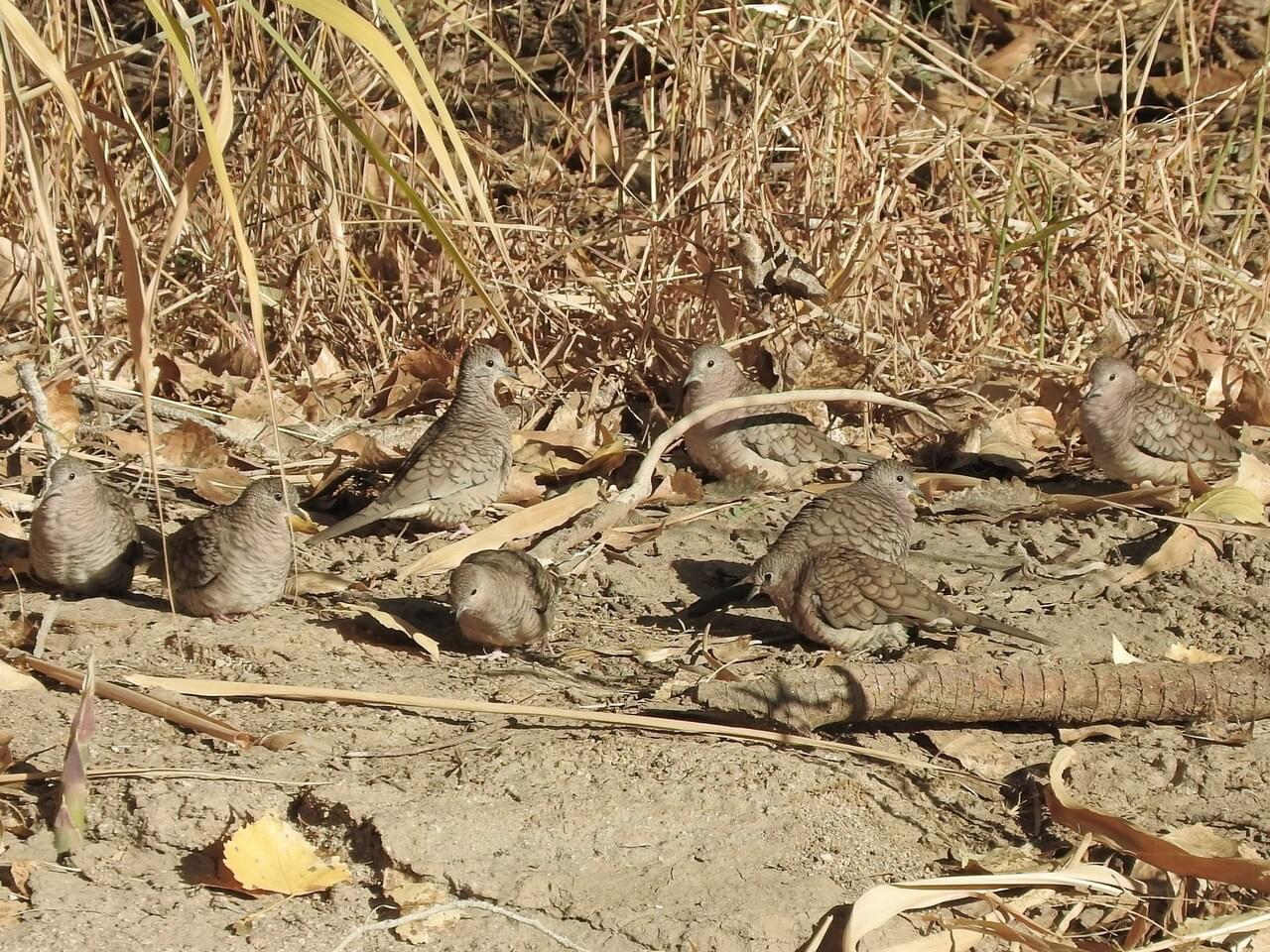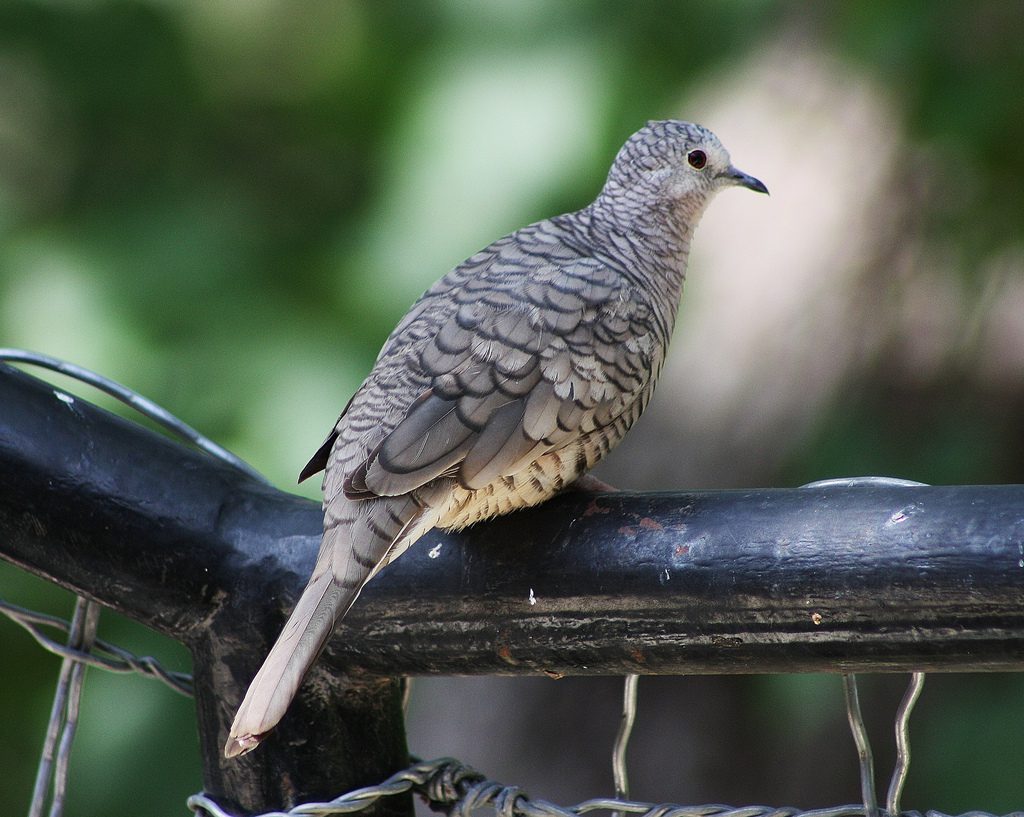 Photo ©
Tripp Davenport
Photo ©
Tripp Davenport
Inca Dove
Regional Species
The tiny Inca Dove is covered in tan scaly-looking feathers and blends right in with its suburban desert habitats. That is, until it bursts into flight, making a dry rattling whir with its wings while flashing chestnut underwings and white in its tail. It nods its head forward and back with each step and coos a mournful "no hope" from the trees. In recent years, this dove has expanded to the north and is now being seen as far north as Colorado, perhaps due to increased human settlement.
Range
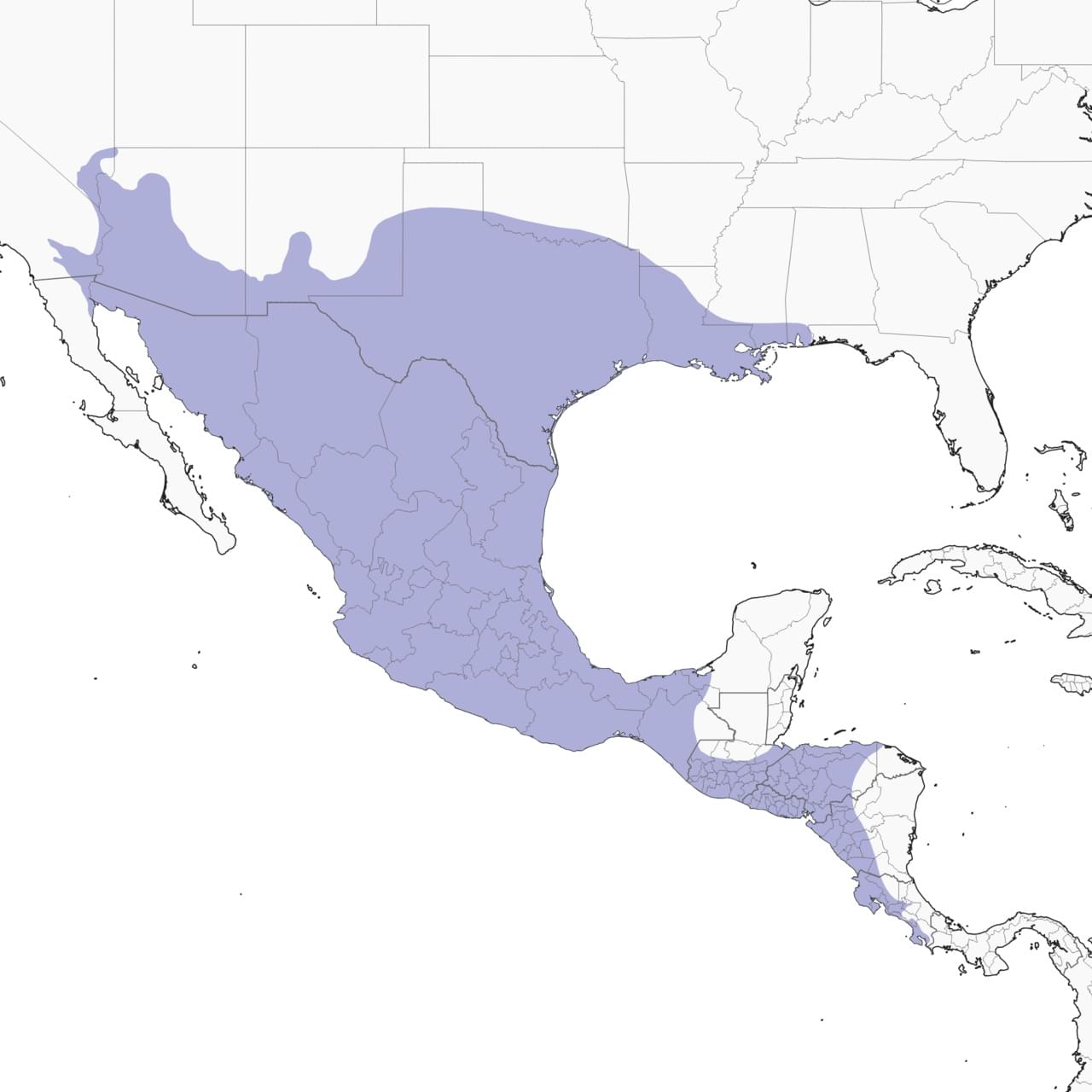
Habitat
Uses same habitats throughout the year. Primarily around human habitations: villages, towns, cities, and farms. Feeds on the ground on lawns, in barnyards, and other open areas. Nests in shrubs and small trees. Occasionally occurs along streams and rivers, but generally not in riparian areas.
Food
Grains, weed, and grass seeds.
Behavior
Inca Doves are sensitive to cold and use several means to survive it. Nocturnal hypothermia (5°-12°C below normal) occurs during cold periods with simultaneous food or water shortages. Pyramid roosting is used during the day and occasionally at night to conserve heat. Five to 12 birds in 2 or 3 rows roost on top of one another in sheltered, sunny locations. Northward range expansion continues, but should eventually be limited by this cold sensitivity.
Nesting
In some of its range this dove breeds year-round, laying two eggs in an unsubstantial twig nest. The same nest may be used repeatedly, becoming reinforced as feces accumulate from continued use.
Appearance
Typical Sound

© David L. Ross, Jr. / Macaulay Library
Adult Description
- Small dove.
- Light brown body.
- Dark brown feather edging gives a scaly appearance.
- Long tail with square tip and white outer tail feathers.
- Rufous in wings visible in flight.
Immature Description
Juvenile similar to adult, but less scaly.
Plumage Photos
Similar Species
Small size distinguished this species from all other N. American doves, except those in the genus Columbina. Compared to others in this genus, Inca is slightly larger with tail relatively long, square-tipped, and having extensive white on sides. In addition, the only Columbina with scaly dorsal plumage. Call a low burry cooing: who'pu or whur-pu, sometimes rendered “no-hope .”
Did you know?!
- The Inca Dove engages in an odd behavior, known as "pyramid roosting." Pairs or groups of Inca Doves may huddle together in the sunshine, with some sitting on the back of the others. The pyramid may be three layers high and include up to 12 birds.
- The oldest recorded Inca Dove was at least 10 years, 10 months old when it was caught and killed by a cat in Texas.
